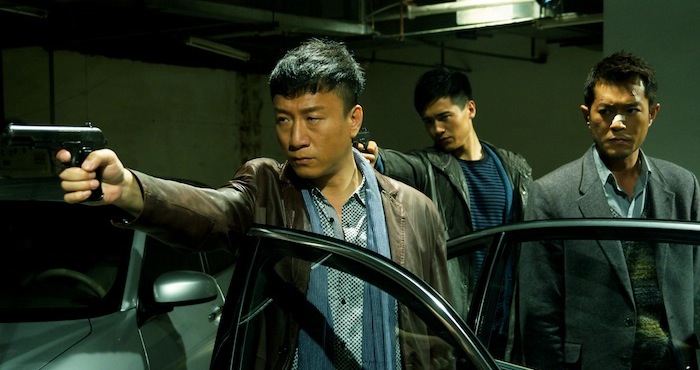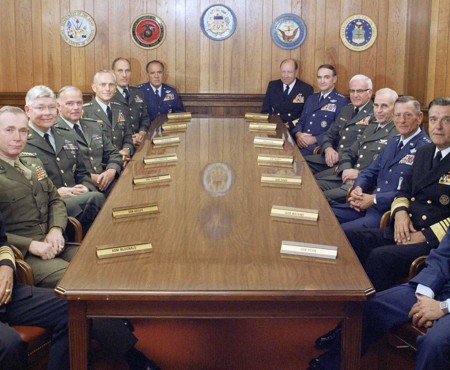A lot of critics have tossed around the term “genre exercise” (or something similar) in regards to Drug War. It’s accurate, but I feel like that phrase is too reductive, and not just when applied to this film, but in general. Think about what it suggests. “Oh, the filmmakers aren’t playing the real game right now. It’s just an exercise.” It’s true that Drug War does not break any of the narrative or stylistic conventions of its genre, or try to engage the audience on anything but a visceral level. But Johnnie To and his crew are accomplished masters of the crime film, and Drug War is almost perfectly constructed. That’s not exercise. That’s playing ball.
Louis Koo plays Choi Tin-ming, better known as “Timmy” Choi. He’s a Chinese drug boss who finds himself having a very, very bad day when his cocaine lab explodes (killing his wife) and he’s subsequently captured by the police. Facing the death penalty, he quickly agrees to help the police bring down his “business partners” in the trade. Captain Zhang (Sun Honglei) sets in motion a high-stakes game of chess, with Timmy as his main piece, as he maneuvers a series of setups and stings in order to bring the drug lords down.
To has been known as a master of Hong Kong action, but moving for the first time to mainland China has also come with a different sensibility. There’s not many gunfights in this movie – instead, it continually builds suspense, piling complications onto the operation at the same time that it raises the stakes. For context, the police start by orchestrating a meeting between two drug kingpins. To do this, they actually stage two separate meetings, with Zhang first impersonating one of the kingpins to meet the first, and then impersonating the other kingpin while meeting the one he pretended to be in the first place. Again: this is how the plot proper starts. And then things get more complicated.
But crime fiction enthusiasts are used to this kind of strategizing and fortune-shifting, and they’ll guzzle this down happily. As long as a viewer keeps on their mental toes, they’ll be able to understand what’s going on, and thrill at the brazen audacity of the Zhang team’s plan. It’s like watching a juggler continually add chainsaws and flaming swords to their rotation of tossed objects. Just when you think things couldn’t get more intricate and risky, they do.
And while the story isn’t wall-to-wall action, when it does break out into violence, it’s absolutely exhilarating. To is operating in the grand tradition of heroic bloodshed. Men run and gun while wielding dual pistols. They dodge and fire and duck for cover with the finesse of expert fencers. They take an impossible number of bullets before they finally die. And unlike typical Hollywood fare, it’s made clear that no one is guaranteed to live, so every battle is rife with tension. Gunshots thunder like cannons and every hit looks and feels horrifyingly vicious. After all the time the movie spends building suspense, this is the glorious release.
The acting is across-the-board great. This is a cast that’s used to the genre, and knows how to give a feel for their characters based on small details. The police exude competence and professionalism, while the criminals are a colorful crew that runs the gamut from screw ups to truly dangerous (and some who look like the former are actually the latter). Honglei is playing the same sturdily efficient leader we’ve seen in dozens of Asian cop movies, but he gets to have fun with it, since he spends a lot of time playing various crooks. But this is Koo’s show. The film does a great job of making Timmy the most thorough bastard possible. He’s a wily fox who will do absolutely anything to survive, and Koo is magnificently loathsome.
Drug War is almost perfect. Sure, I could say it’s almost perfect “for what it is,” but that would be useless. Every movie is however good for what it is. To and co. wind up and unleash a ridiculously fun ride, and it’s one that you absolutely should hop onto.




















